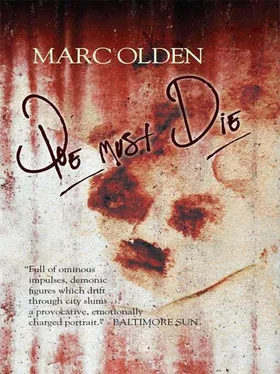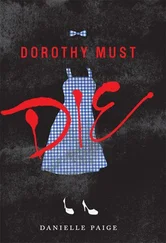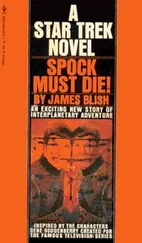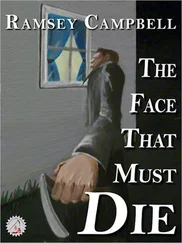Marc Olden - Poe must die
Здесь есть возможность читать онлайн «Marc Olden - Poe must die» весь текст электронной книги совершенно бесплатно (целиком полную версию без сокращений). В некоторых случаях можно слушать аудио, скачать через торрент в формате fb2 и присутствует краткое содержание. Жанр: Триллер, Исторический детектив, на английском языке. Описание произведения, (предисловие) а так же отзывы посетителей доступны на портале библиотеки ЛибКат.
- Название:Poe must die
- Автор:
- Жанр:
- Год:неизвестен
- ISBN:нет данных
- Рейтинг книги:5 / 5. Голосов: 1
-
Избранное:Добавить в избранное
- Отзывы:
-
Ваша оценка:
- 100
- 1
- 2
- 3
- 4
- 5
Poe must die: краткое содержание, описание и аннотация
Предлагаем к чтению аннотацию, описание, краткое содержание или предисловие (зависит от того, что написал сам автор книги «Poe must die»). Если вы не нашли необходимую информацию о книге — напишите в комментариях, мы постараемся отыскать её.
Poe must die — читать онлайн бесплатно полную книгу (весь текст) целиком
Ниже представлен текст книги, разбитый по страницам. Система сохранения места последней прочитанной страницы, позволяет с удобством читать онлайн бесплатно книгу «Poe must die», без необходимости каждый раз заново искать на чём Вы остановились. Поставьте закладку, и сможете в любой момент перейти на страницу, на которой закончили чтение.
Интервал:
Закладка:
“Mr. Barnum, sir, I pledge to you that I ‘ad nothin’ to do with settin’ no fire. Ain’t never set no fire in me life.”
“I concur, sir. To begin with, two men were seen fleeing the premises shortly after the blaze got underway and there is the matter of the landlady having seen late night visitors, also two men, walk past her open door and go upstairs. May I add that those Europeans in my employ tell me you are known in England as an honest prizefighter and friend to nobility. I am told that Pierce James Figg stands for respect and fair play, something I admire much in the English.”
Figg, top hat in his hands, looked down at the floor. “Does me best, sir.”
“Sir, you are too modest, a virtue I do not covet but admire from afar. I seem to remember the other day that you did possess a letter of introduction from Charles Dickens.”
“Yes sir. To Mr. Poe.” Little Mr. Poe who saved me life. Comes back drunk as a lord, he does, and heaves a washbasin through the window to give me air to breathe and he slaps me bleedin’ face to wake me up. And somehow the little man gets me out of bed and into the bleedin’ hallway. Somebody turned on the gas last night. Damn thing was shut off before I closed me eyes. Jonathan. Who else wants to kill me?
Except Figg wasn’t so sure it was Jonathan. Jonathan preferred blood sacrifices. Offerings to his demons. But if it wasn’t him, then who the bloody hell was it? What’s more Figg’s leg ached from being kicked last night by Black Turtle.
Barnum, eyes still on Figg, fingered a new poster on his desk. He and Figg were in Barnum’s office at the American Museum, a room bright with posters from past attractions. People rushed by in the hall and from everywhere Figg heard the sounds of crowds. Not much past eleven in the morning and Mr. Barnum’s place of business was packed.
“Mr. Poe,” said Barnum. “Is he-”
“Waitin’ outside in a cab. A bit under the weather, ‘e is.”
“Yes. I understand.”
You sure as bloody hell don’t, thought Figg, suddenly feeling defensive about the man who’d saved his life. He ain’t drunk. He’s sick from two glasses of wine and from seeing people burn to death and from swallowing gas while trying to save my hide.
Figg said, “Takin’ ’im home to Fordham, which ‘e’s asked me to do. He wants to rest, get some air.” Owe him that much, I do. Who the hell is dear Muddy he keeps on about. He ain’t but half alive now, sitting out there wrapped in a blanket I nicked from John Jacob Astor’s fine hotel. Mr. Astor won’t miss it. Mr. Bootham says Mr. Astor is almost eighty-five years old and dying and so blind that a colored stands behind his chair and guides the spoon to ‘is mouth. What’s Mr. Astor goin’ to do with his twenty million dollars now and him owning half of the land in stinkin’ New York City.
“I take it, Mr. Figg, that Mr. Poe has been of some assistance to you.”
“You might say so, yes.”
“Peculiar man, Mr. Poe. Has his problems in getting along with people. One hears stories of his bad temper, constant arguments, his unwillingness to compromise.”
“Probably thinks ‘e’s correct in some things, sir. Like you do, I would imagine.”
Barnum grinned. “Point well taken, Mr. Figg.”
Figg shifted. He wanted to leave. Get Poe out in the country, then back to New York to continue the hunt.
“Well, Mr. Barnum, I won’t be takin’ up anymore of yer time, sir. You must be a most busy man.”
Barnum smiled, picking up the poster from his desk. “A sensational new act, Mr. Figg, and I invite you and Mr. Poe to enjoy it as my guest. Ethiopian Delineators, sir. Black minstrels. The most popular entertainment on the modern scene. White men in blackface, singing the catchiest of darky tunes and by God, your toe will be tapping from the moment they strike that first note. These are ‘the Dixie Melodeers,’ whom I expect to draw joyous crowds for me and well they should for what I am paying them.”
Barnum beamed at the poster. “Banjos twanging, tambourines, the clackety-clack of the bones. Total pleasure, sir. Total pleasure.”
The poster-“The Dixie Melodeers In Melodies For You”-showed drawings of five men in blackface, battered top hats and ragged clothes, each one seated and grinning while holding either a banjo, fiddle, tambourine or dry bones. Each man’s name was beneath the drawing. Further down was a full-length drawing of each man standing erect, well dressed and minus burnt cork, wigs, rags. Barnum wanted to make sure his audiences knew that the Dixie Melodeers were actually white men.
Barnum said, “A new composer, Stephen Foster, has written some of the tunes the Dixie Melodeers will perform. Young Foster is a bookkeeper, but I feel he has talent and the ability to capture the true darky spirit. I tell you, Mr. Figg, the minstrel show is the American national opera and has many long years ahead of it. I cannot convey to you how heated is the craze for this sort of show at the moment.
He laid down the poster. “Well, I am sure you have interests of your own. Do you still seek this Jonathan?”
“I do.”
“Forgive me for ever doubting when you first mentioned him to me. A man such as yourself, sir, the associate of nobles and the great, is a man to be trusted and admired.” Barnum responded to important people and he now considered Figg important. Figg knew this, but said nothing. The world is full of them what is climbing somewheres and Mr. Barnum is a climber of the highest order and easily impressed. Best leave before he wants to hug and kiss me.
“Me and Mr. Poe’s got to be goin’, sir. Thankin’ you fer yer kind offer of assistance.”
Barnum hurried from around the desk, taking Figg’s hand in both of his. “Remember, sir, the word of Barnum is money in the bank. Come, let me escort you to the entrance.”
The halls, rooms, exhibits, of the museum were jammed with people. Barnum’s appearance drew a rush of attention from patrons and staff members. Figg was pushed, jostled, squashed in the mob. Barnum loved the excitement, greeting all who came near him in his squeaky voice.
Turning to Figg, he said, “They are pleased with whatever I do for them, Mr. Figg. Watch this!” Barnum raised his voice. “Everyone, please listen! Follow me to the Egress! To the Egress!”
Others took up the cry and Figg found himself pushed in the human tide. What the bloody ‘ell was a flippin’ egress? Figg couldn’t do anything but head in that general direction. And then he saw the sign over a door. To The Egress.
The crowd pushed harder, faster. Now Figg and Barnum were to one side of the door and the crowd poured through, some of them shouting “Let us see the egress! The egress!”
When most of the crowd had poured through the door, Barnum closed it, signalling a uniformed employee to stand guard and let no one in or out.
Figg frowned. Hell he was this close, why couldn’t he have seen the damn thing.
Barnum laid a hand on his shoulder. “An egress, Mr. Figg, is an exit, the way out of a building, nothing more. I was faced with having crowds inside, who while they had paid their quarter to enter, were preventing the crowds outside from doing the same. Rather than give up that money waiting for me on the pavement, I devised this scheme to empty my museum, and while it smacks of deceit, I prefer to think of it as charming humbug. People take it in good stride.”
Figg nodded. Right clever bloke, this Barnum. Ain’t no egress ‘ere ‘cept a door what gets you outside.
The showman took him past a lecture hall, called such by Barnum rather than the theater it actually was. Theater was thought to be immoral. Onstage, the Dixie Melodeers, in exaggerated Negro dialect, were singing “Nigger Put Down Dat Jug” to a huge, delighted audience. Barnum and Figg stopped to listen. Right entertaining, thought Figg. Lively chaps onstage flappin’ their arms, liftin’ their knees, rollin’ their eyes and all that black stuff on their faces. Right pleasant. Figg wished he could stay and see more, but …
Читать дальшеИнтервал:
Закладка:
Похожие книги на «Poe must die»
Представляем Вашему вниманию похожие книги на «Poe must die» списком для выбора. Мы отобрали схожую по названию и смыслу литературу в надежде предоставить читателям больше вариантов отыскать новые, интересные, ещё непрочитанные произведения.
Обсуждение, отзывы о книге «Poe must die» и просто собственные мнения читателей. Оставьте ваши комментарии, напишите, что Вы думаете о произведении, его смысле или главных героях. Укажите что конкретно понравилось, а что нет, и почему Вы так считаете.











